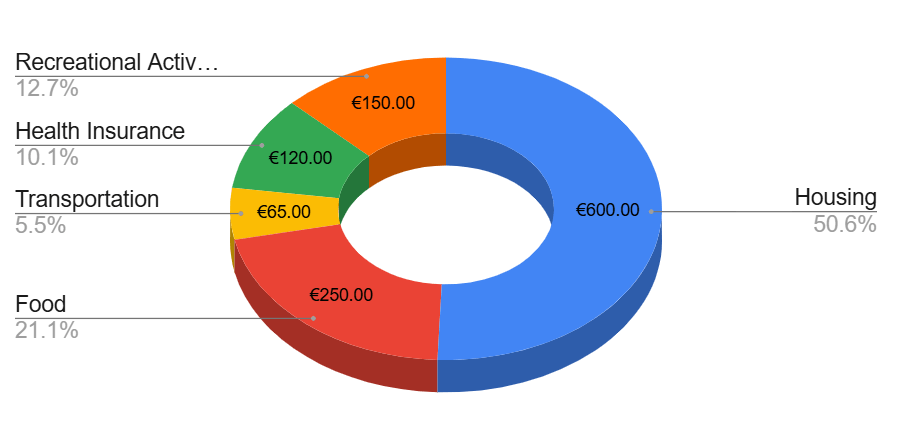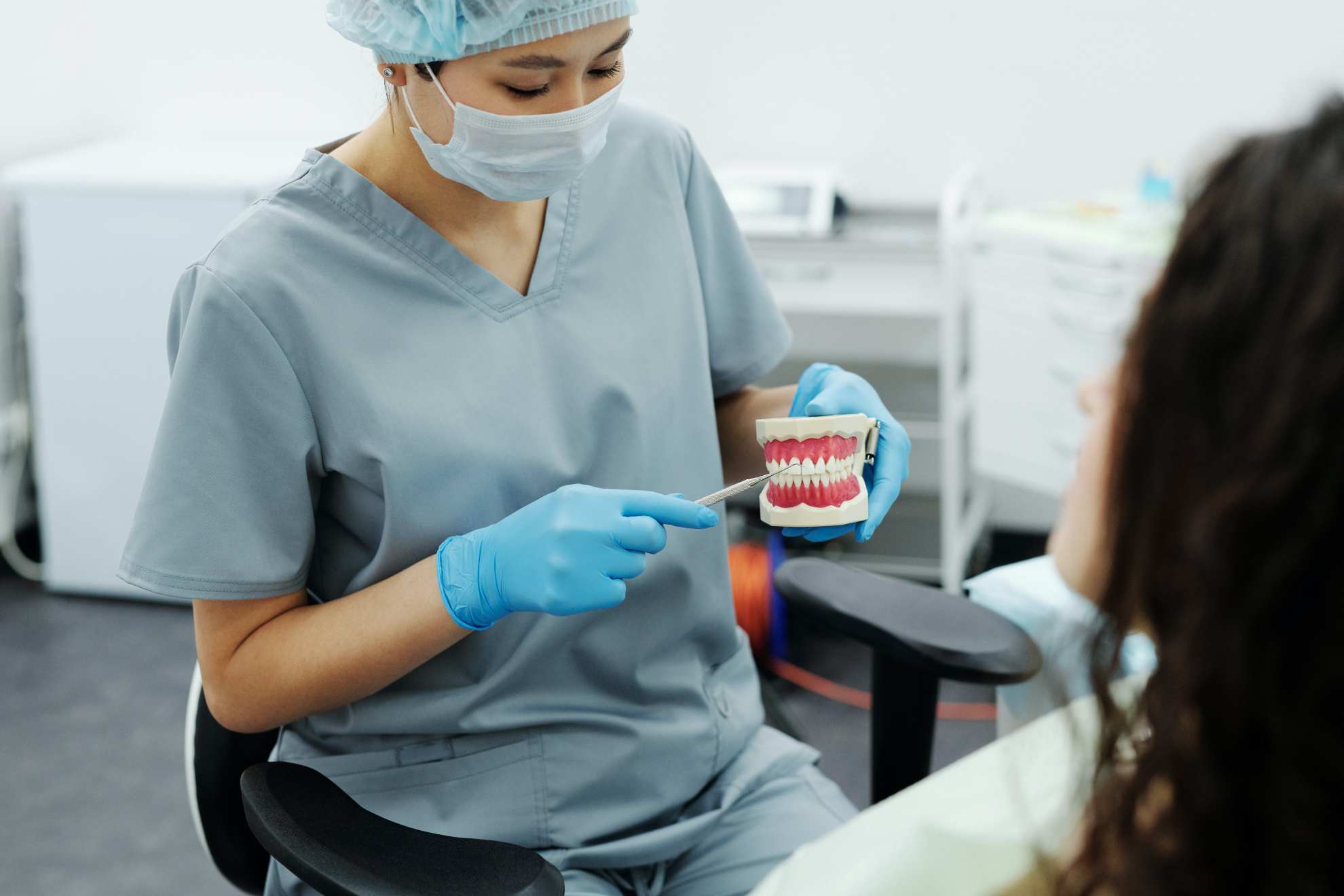MBBS in Germany: Your Complete Guide to Studying Medicine Abroad

It’s no surprise that an MBBS in Germany is a staple among the qualifications for becoming a successful doctor. After all, the country is known for its innovative research, world-class hospitals, and disciplined approach to higher education.
But studying medicine in Germany isn’t as simple as packing your bags and hopping on a flight. It requires a strong academic performance, proficiency in the German language, and being ready to face some unique challenges.
In this guide, we’ll walk you through everything you need to know about the educational journey in Germany - from requirements to tuition fees, living costs, career prospects, and more.
The key takeaways of this blog include:
- Most medical universities in Germany teach in the German language, requiring at least C1 proficiency for admission. However, there is 1 private university with a full English-language curriculum.
- Public universities charge no tuition fees, except in the region of Baden-Württemberg, where it’s €3,000 per year for non-EU students. Private universities cost between €20,000 - €30,000 per year.
- The application process is highly competitive, with limited seats for international students.
- After graduating, residency in Germany lasts 5-6 years, with salaries starting at €4,500 – €6,000 per month.
- Graduates can practice in Germany or internationally but must meet local licensing requirements.
📝Please note: Medlink Students cannot assist you in securing a spot to study MBBS in German. We specialise in guiding students towards finding their ideal university for studying medicine in English.
If Germany is the right destination for you, but you want to study in English, there is currently only 1 university that offers an entirely English-language curriculum. That is the University of Targu Mures Medical Campus Hamburg (UMCH), where Medlink Students can help you get admitted.
All tuition fees, living expenses, and salaries listed in the blog are accurate as of February, 2025, but may be subject to change.
Table of Contents
- 1 What Does the German MBBS Pathway Look Like?
- 2 Obtaining a Medical License (Approbation) in Germany
- 3 Tuition Fees & Cost of Living for MBBS in Germany
- 4 Life as a Medical Student in Germany
- 5 What Happens After Graduating?
- 6 Doctor Salaries in Germany
- 7 Potential Challenges & Pitfalls for International Students
- 8 Why This Matters to You
- 9 FAQ: MBBS in Germany
- 9.1 1. Can I study MBBS in Germany in English?
- 9.2 2. Is MBBS in Germany free for international students?
- 9.3 3. How difficult is it to get into a German medical university?
- 9.4 4. Do I need to learn German to study MBBS in Germany?
- 9.5 5. How much does it cost to live in Germany as a medical student?
- 9.6 6. How long does it take to become a doctor in Germany?
- 9.7 7. How much do doctors earn in Germany?
- 9.8 8. Can I work as a doctor outside Germany after completing my MBBS?
What Does the German MBBS Pathway Look Like?
First things first, you need to get accepted to a medical school. However, admissions in Germany are incredibly competitive, and the application process can be quite complex and time-sensitive. However, you can ensure a smooth application by understanding the requirements, deadlines, and required steps:
1. Meet the Eligibility Requirements
Before applying, make sure you meet the basic eligibility criteria:
Educational qualifications
- A high school diploma equivalent to the German Abitur (e.g., A-levels, IB, or a recognised equivalent).
- Strong grades in Biology, Chemistry, and Mathematics.
- If your qualification is not recognised as equivalent, you will need to take a 1-year preparatory course (Studienkolleg).
Language proficiency
- Medicine in Germany is taught in German, so you’ll need to prove your language proficiency with at least a B2/C1 level (through tests like TestDaF or the DSH exam).
- A few private universities offer MBBS programmes in English, but only 1 lets you take the entire curriculum in English.
Additional requirements
- Some universities may require a TestAS or TMS entrance exam. These are standardised tests for international applicants typically required by public universities.
- A well-prepared motivation letter (optional but recommended) explaining why you want to study medicine in Germany.


2. Choose Which Medical Universities to Apply to
There are over 40 medical universities in Germany, but the competition for each spot is fierce.
Some of the top medical universities in Germany include:
- University of Targu Mures Medical Campus Hamburg (in English)
- Heidelberg University
- Charité – Universitätsmedizin Berlin
- LMU Munich
- RWTH Aachen University
- University of Hamburg
Most universities allocate seats through a centralised admission system, but some accept direct applications.
3. Apply Within the Deadlines
Typically, the medical school application deadlines in Germany are:
- Summer intake: Mid-January.
- Winter intake: Mid-July.
Most medical programmes start in winter, which is also when the competition for spots is highest. Applying early can give you a major advantage in securing a seat.
4. Pass the University Selection Process
Medical school admissions in Germany give priority to students with the highest grades, and the selection is based on:
- Your final school grades (Abitur equivalent)
- TestAS/TMS scores (if required by the university)
- German language skills
- Bonus criteria, including previous medical training, volunteer work, or relevant experience
If shortlisted, you may be invited for an interview or additional assessment.
5. Apply for a Student Visa After Getting Accepted
Once accepted, you’ll receive an admission letter, but if you’re a non-EU student, you’ll need to apply for a German student visa.
The requirements for a visa are:
- Proof of admission to a university
- Proof of financial means
- Health insurance coverage
- Valid passport
Processing times for visas can take several weeks, so apply as soon as possible.


6. Enroll at the University & Begin Your Studies
Before classes start, you must officially enrol (Immatrikulation) at your university. This involves submitting your final documents, paying your semester fees and getting your student ID.
Obtaining a Medical License (Approbation) in Germany
To practice medicine independently in Germany, after graduating, international graduates must obtain Approbation, the official medical license.
The steps to obtaining Approbation are:
- Pass the Medical State Exam (Zweite Ärztliche Prüfung).
- Demonstrate German language proficiency (C1 level in medical German).
- Complete a mandatory internship (Praktisches Jahr - PJ) in a German hospital.
- Apply for Approbation through the regional medical board (Ärztekammer).
Once approved, doctors receive full medical licensing and can work anywhere in Germany.
Tuition Fees & Cost of Living for MBBS in Germany
The cost of studying medicine in Germany varies from very affordable to pretty expensive, depending on the university and the location.
Tuition Fees for MBBS in Germany
Public Universities
The German government subsidises higher education, so the country’s public universities do not charge tuition fees for most undergraduate programmes, including MBBS. However, students must pay a semester contribution fee of €100-€400 per semester, which covers administration, student services, and public transport in some cases.
An exception are the public universities in the state of Baden-Württemberg, which charge €3,000 per year for non-EU students. These medical schools are Heidelberg University, the University of Freiburg, the University of Stuttgart, the University of Mannheim, and the University of Tübingen.
Private Universities
There are only a few private medical universities in Germany that offer MBBS programmes. Typically, they charge between €20,000-€30,000 per year.
Cost of Living in Germany for MBBS Students
On average, living in the UK is 29.1% more expensive that Germany, where iving expelnses can be anywhere between €700 and €1,500 per month.. Here are the typical monthly expenses in Germany for medical students:
| Expenses | Costs Average (€) | Costs Average (GBP) | Costs Average (USD) |
|---|---|---|---|
| Housing | €600 | £498 | $624 |
| Food | €250 | £207.5 | $260 |
| Transportation | €65 | £53.95 | $67.6 |
| Health Insurance | €120 | £99.6 | $124.8 |
| Recreational Activities | €150 | £124.5 | $156 |
| Total | €1,185 | £983.55 | $1,232.4 |


Of course, how much you end up spending per month depends on your location and respective lifestyle. Typically, in expensive cities like Munich, Frankfurt, and Hamburg, you can expect to spend €1,200+ per month. However, in more affordable cities like Leipzig, Dresden, and Jena, your living costs will be around €800 - €1,000 per month.
A popular option among students to reduce costs is living in shared apartments or student dormitories, which typically cost between €250 - €500 per month. For example, The UMCH dormitories cost about €290 per month and include 3 meals and laundry services.
Life as a Medical Student in Germany
Studying medicine in Germany is both challenging and rewarding. As a student, you can expect to spend a significant amount of theoretical studying to develop a solid foundation and hands-on training to put your knowledge into practice.
A typical day for a medical student includes morning lectures, practical training in labs or hospitals, and independent study sessions. However, memorisation alone is not enough in Germany. Students are also expected to develop their critical thinking and problem-solving skills through hands-on learning.
Exams are known to be very difficult, and many students spend weeks preparing for them, especially for the Physikum, the first major medical exam after the preclinical phase.
Support Services for International Students
German universities offer a variety of support services to help international students get settled in and used to living in a new country. This includes:
- Free or low-cost German language courses.
- International offices that assist with visa issues, residence permits, and university paperwork.
- Student unions & mentorship programmes can provide guidance on both academic and personal matters.
- Career counselling to help students find internships, part-time jobs, and post-graduation employment.
What Happens After Graduating?
The options after getting a German MBBS diploma include:
Residency & Specialisation in Germany
After obtaining your state examination in medicine, you must complete a medical residency (Facharztausbildung) to specialise in a particular field, such as surgery, cardiology, or neurology. Residency training is full-time, hospital-based, and includes night shifts.
Residencies are typically 5-6 years, depending on the speciality. At this point, you will start earning a salary between €4,500 – €6,000 per month, which will increase with experience.
💡 Did You Know? By 2030, Germany is expected to face a shortage of over 100,000 doctors, making it a high-demand country for medical professionals. This critical shortage is worst in rural areas.
Job Prospects Abroad
Germany’s high-quality medical education is recognised internationally, allowing graduates to work in EU countries, the UK, the US, Canada, and beyond. However, each country has its licensing requirements that must be fulfilled. For example, to become a doctor in the UK, you will need to pass the PLAB test, while for US licensing, you will need to take on the USMLE.
Doctor Salaries in Germany
Medical professionals in Germany are among the highest-paid professionals in Europe, but salaries vary based on location, experience, specialisation, and hospital type.
In Germany, doctors can work in:
- Hospitals, public and private clinics.
- Private practice. After gaining experience, doctors can open their own practice.
- Research & academia in universities and pharmaceutical companies.
- International NGOs, including organisations such as Doctors Without Borders (MSF).
Here’s roughly how much you can expect to earn as a doctor in Germany:
| Medical Position | Average Annual Salary |
| Medical Intern | €5,000 – €12,000 |
| Resident Doctor | €60,000 – €75,000 |
| Specialist | €80,000 – €120,000 |
| Senior Doctor | €110,000 – €150,000 |
| Chief Physician | €200,000+ |
Potential Challenges & Pitfalls for International Students
Some of the difficulties you can expect to encounter as an international student in Germany are:
- Language Barrier
Most medical courses are taught in German, and C1-level proficiency is required to interact with patients during clinical training.


- Competitive Admission Process
German medical schools have high academic standards and very limited seats for international students.


- Intensive Curriculum
The MBBS programme in Germany is very demanding and requires strong time management skills.


- Cultural Differences & Social Integration
Adjusting to German culture, healthcare practices, and social norms can take some significant time.


Why This Matters to You
Choosing where to study medicine is a decision that can shape your entire life. While Germany offers a high-quality medical education, getting accepted is far from straightforward.
Many students underestimate the language barrier, intense competition, and complicated legal requirements. Unfortunately, making the wrong decision, like selecting a university without fully understanding its criteria, could mean years of delays, costly mistakes, or even having to restart your studies elsewhere.
Understanding the system before you apply is crucial if you want to make a choice that aligns with your goals. That’s why Medlink Students offers a completely free consultation with one of our academic advisors, who can help you make an informed decision about your future.
However, please keep in mind that we do not offer consultations about studying medicine in German.
If you’re looking for an English-taught alternative, Medlink Students can help you find the perfect university where you can study medicine without any of the complexities of applying on your own.
FAQ: MBBS in Germany
1. Can I study MBBS in Germany in English?
The vast majority of medical universities in Germany teach in German. However, the University of Targu Mures Medical Campus Hamburg (UMCH) offers an entirely English-taught medical programme.
2. Is MBBS in Germany free for international students?
Public universities do not charge tuition fees, except for those in Baden-Württemberg, which charge €3,000 per year for non-EU students. However, students must pay a semester contribution fee (€100-€400 per semester).
3. How difficult is it to get into a German medical university?
Admission is highly competitive, with very limited seats for international students. Selection is based on academic performance (Abitur equivalent), language skills (C1 German), and entrance exams like TMS/TestAS.
4. Do I need to learn German to study MBBS in Germany?
Yes. Most programmes require at least C1-level German proficiency since the curriculum is taught in German and clinical training involves patient interaction.
5. How much does it cost to live in Germany as a medical student?
Living expenses range from €700 – €1,500 per month, depending on the city. Munich and Frankfurt are among the most expensive, while Leipzig and Jena are more affordable.
6. How long does it take to become a doctor in Germany?
The MBBS programme takes 6 years, followed by 5-6 years of residency for specialisation. After passing the state medical exams, graduates receive their medical license (Approbation).
7. How much do doctors earn in Germany?
Resident doctors: €54,000 – €72,000 per year
Specialists: €80,000 – €120,000 per year
Chief physicians: €200,000+ per year
8. Can I work as a doctor outside Germany after completing my MBBS?
Yes, but you must meet the licensing requirements of the country where you wish to practice. For example, PLAB for the UK and USMLE for the US.
Leave a Reply


About Medlink Students
Leading international recruitment company for medical students in Europe. British Council Certified Agents. 10+ years of experience and more than 10,000 students advised.








